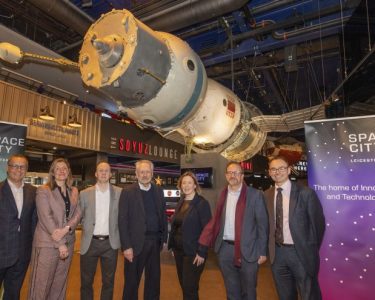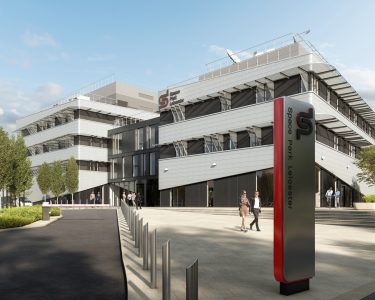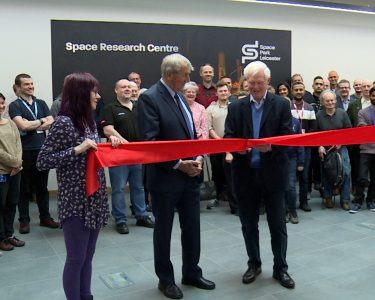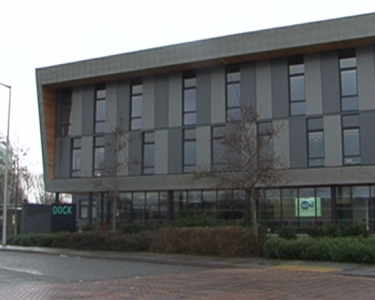Space Park Leicester has generated an estimated £89m for the economy in its first year of operation, according to figures released to mark its first anniversary.
The calculation represents the impact of 607 jobs whose employment is supported by the pioneering space hub, which was officially opened by British astronaut Tim Peak back in March 2022.
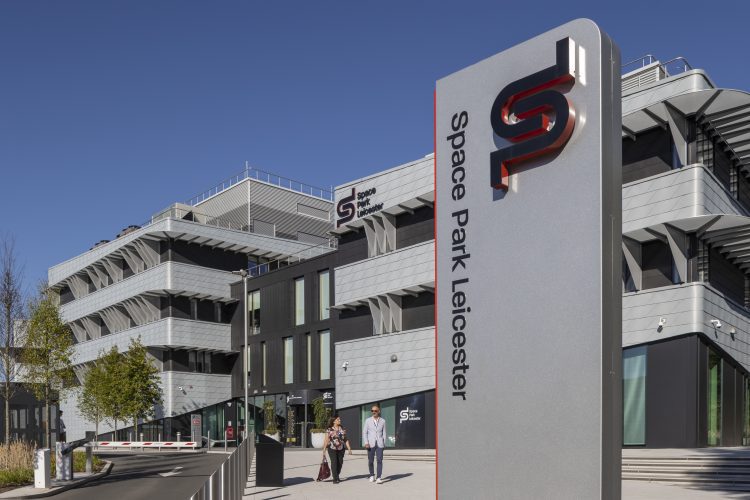
It comes as Space Park Leicester joins the new Space City cluster in Leicester that will create one of the largest and most connected Enterprise Zones for space-related activities in the UK.
Space Park Leicester is a unique single-site science and innovation park dedicated to – and specifically designed for – space-related companies and researchers, covering enterprise, innovation and teaching. A strategically placed space sector cluster with a national and international focus, it is forecast to contribute £750 million a year to the UK space sector over the next decade.
A new rapid assessment of the space sector in Leicestershire by space economics consultancy know space estimates the Gross Value Added (GVA) of Space Park Leicester, representing the labour productivity of its employees, as £89.1m.
Since opening, it has landed 5 major Foreign Direct Investments, created 125 new jobs and hosted more than 200 events and visits. Over 20 leading organisations with a wealth of experience collaborating with industry and public sector bodies, both in the UK and globally, now reside at Space Park Leicester, including Rolls Royce, Airbus, Northrop Grumman, Satellite Applications Catapult, CGI, EarthSense and Maxar. The NERC funded National Centre for Earth Observation also has its headquarters at Space Park Leicester.
Professor Richard Ambrosi, Executive Director of Space Park Leicester, said: “We are proud of the success achieved in this first year and since the opening of Space Park Leicester and look to the future. It is a testament to the talented team of people working tirelessly across science, engineering, operations and commercial functions. We continue to build on our heritage in the space sciences and look forward to increasing our collaboration with industry, national and international partners. Our ambition for the future is captured by our growing science portfolio and plans to physically expand into a commercially focused additional phase of Space Park Leicester called Digital Space Futures.”



